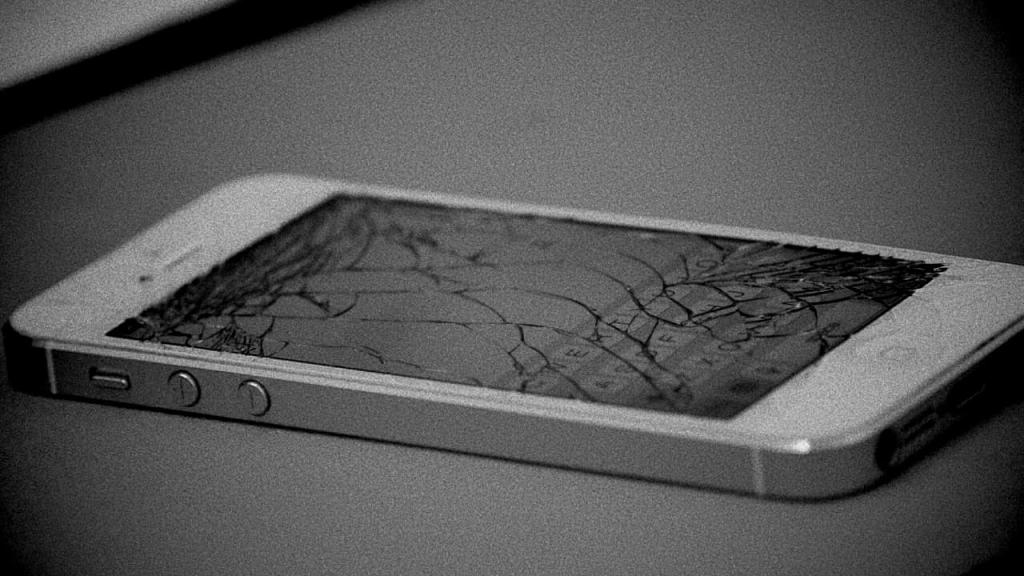JB Hi-Fi is in the headlines, not for a fancy gold-star-bedecked sale event, but instead for the claim that it allegedly sold consumers warranties for rights they already had under Australian consumer law.
The ABC quotes Miranda Nagy from Maurice Blackburn lawyers as stating “What we’re alleging in the class action is that JB Hi-Fi has been selling extended warranties that essentially offer Australian consumers the same thing as what they already get for free under the Australian Consumer Law”.
JB Hi-Fi has indicated that it will defend the case, which will naturally have to proceed through the relevant legal manoeuvrings that typify this kind of action. While it would be unfair (and legally unwise) to specifically comment on this case, it does throw the issue of what your rights are when you’re purchasing goods – including electronic goods – in Australia actually are, and whether there’s value in these extended warranties at all.
What does Australian Consumer Law actually say?

The Australian Consumer Law is actually quite broad, covering matters such as product safety and unfair contract terms, but what we’re really talking about here in this context is the application of that law when it comes to matters of product faults, because that’s what you’re nearly always pitched when being pressured to buy an extended warranty on, say, a new TV, laptop or smartphone.
The key detail here is that goods sold in Australia must be of “acceptable quality”. The ACL site’s advice to consumers (to be clear, I’m quoting from here) states the following:
A good purchased is expected to be durable enough to perform its intended function(s) for a reasonable amount of time.
Moreover, in terms of warranties, it states:
Consumer guarantees under the ACL apply for a reasonable time and in addition to any warranties that manufacturers and/or suppliers provide for a good. This means consumer guarantees may continue to apply during the period of those warranties and after those warranties expire. Retailers sometimes offer to sell an extended warranty or care package to extend the length of time of the manufacturer’s warranty. Whether or not a consumer purchases an extended warranty, they still have the protection of the ACL consumer guarantees. If a supplier is offering an extended warranty, it is best practice to provide consumers with a list of what rights the extended warranty provides above any automatic consumer guarantee rights under the ACL. This will lower the likelihood of a consumer being misled about the value of the extended warranty.
It’s likely – while that’s a consumer easy-to-read summary, not the actual legalese itself – that the JB Hi-Fi case will revolve around the latter part of that statement, as to whether consumers were properly informed about the contents and value of an extended warranty when purchasing.
Anecdotally, speaking across a range of Australian electronic retailers, I’ve certainly been pitched some useless or poorly explained warranties – which I declined – as well as overhearing sales staff making some pretty gross misrepresentations about what the ACL actually covers from time to time.
It’s not unheard of for the ACCC to step in from time to time – Apple in Australia has long form for this kind of issue, which is why it’s got a breakdown of its AppleCare+ service for Australians now – but beyond the specifics of the JB case, there’s a few key points to always be aware of when buying technology goods – or indeed, any goods – and how extended warranties might work within those contexts.
There’s no specified timeframe for “reasonable time”
The big one here is that it’s not as though the ACL states a timeframe for reasonable shelf life of any technology goods. So while (for example) the ATO expects a laptop to last two years for depreciation purposes, it’s not suggesting that two years is all you should get out of your next notebook before all the blue smoke escapes.
There’s no master list of lifespans for TVs, computers, smartphones or tablets, and this is absolutely by design.
Instead, it’s a matter of reasonable expectations around a given good and its specific price. That makes logical sense; I don’t think anyone buying a cheapy $99 Android tablet is going to expect it to be quite so durable as one that costs $1,500+ — but you’d certainly be rightfully annoyed if that $1500+ model carked it before the budget one did.
There’s a number of factors that can affect “reasonable” durability

Durability is variable, and the key factors here that can be reasonably thought of to affect the way a product might last can include its build materials – so, for example, you might fairly think that a laptop with a solid aluminium frame might last longer than one with a simple plastic chassis – the price, as already mentioned, and whether you’re buying the item as brand-new, second-hand or even as a factory second.
Some parts of a product may also require regular refreshing or replacement, such as the filters in a vacuum cleaner; while the replaceable filter might break earlier than the vacuum cleaner that wouldn’t contravene the ACL as long as the actual machine part kept on actually functioning.
The other major factor here relates to claims made around the product at the time it is purchased. If a salesperson says that the new smartphone you’ve got is capable of time travel and you get it home and the flux capacitor won’t fire up or was never actually there, you’d be entitled to a straight up refund. In tech terms, this is broadly why Samsung copped a hefty fine for its claims over water resistance on its Galaxy phones and the way it handled consumer complaints around it.
In terms of warranties, where this kicks in more relates around the claims that they might make around what you miss out on if you don’t buy an extended warranty. Again, while it’s anecdotal, I have heard some salespeople in stores make some pretty gross claims around how consumers might be left with no redress if they don’t pay for the warranty and something goes wrong.
Your claims are with the seller, not the manufacturer

When you’re sold goods by any company – strictly speaking that includes international merchants, but getting them to comply with the ACL can be a harder fight – then the ACL applies to your transaction with that business. What that means in terms of warranty coverage is that your first port of call if a problem arises under normal usage should be with that merchant.
All too often stores will try to shift the issue to the manufacturer of the product if a fault develops. In some cases it may be more prudent or quicker to deal with the manufacturer, but you’re 100% not obliged to at all, and stores cannot simply state that any problems must go back to the manufacturer in every case if a fault applies.
Also, because this is frequently misunderstood, you are not in any way obliged to return products for replacement, refund or repair in the original packaging. In some cases it might make getting repairs a little easier on you if you’ve got a box you can put it in, but it is not required at all, even if the store tries to claim that it is.
Consumer Law only covers normal use

One big catch here is that the provisions of the ACL that cover faults, repairs and refunds only apply to normal and expected use of a given product. If you’ve been splitting your usage of your washing machine between cleaning your grubby unmentionables and mixing concrete, you don’t have much of a case to argue if it breaks down, in other words.
That also generally applies to accidental damage – though sometimes it’s worth checking your home insurance to see what’s covered and what’s not covered there – so if you decide to go mental on your smartphone with a hammer, that’s your decision and your breakage issue. Some manufacturers of smartphones are offering single-instance replacement screens for some models – especially toughened fare – but that’s over and above what the ACL covers you for.
So are all extended warranties worthless?

Not entirely.
It’s a question of being properly informed – and of stores properly informing customers, which they’re obliged to do – about what the extended warranty offers over and above the provisions of the Australian Consumer Law and the consumer rights it affords you automatically in every purchase scenario.
If it’s simply providing a warranty for a timespan that would be expected of a given product anyway, then it’s not doing much but sucking a few extra dollars out of your bank account at the time of purchase.
Some extended warranties do go further, however, offering services such as international coverage, some level of breakage or accidental coverage or discounts on repairs for accidental damage or a considerably longer timespan of coverage than might be “reasonably” expected.
However, it’s the retailer that’s trying to sell you the extended warranty, so the proper approach here should be to ask, quite simply “What does this offer me over and above my rights under Australian Consumer Law?”
If they can’t answer that, it’s probably not worth buying that warranty.
If they make claims contrary to the ACL, report them, because that’s an offense under the ACL.
If they make a grand statement that’s offering coverage way over the ACL, or that meets a specific need of yours, they may be worth buying – bearing in mind that the claims that the salesperson makes are part of what the ACL covers you for.
Check that warranty carefully however for any exceptions or exclusions that might reduce its value, too.
No store should be deceptive in any way, but it’s always easier to protect yourself in the first instance rather than having to go through the stress and fuss of having to make a claim or launch a court action to get what you’re entitled to.
